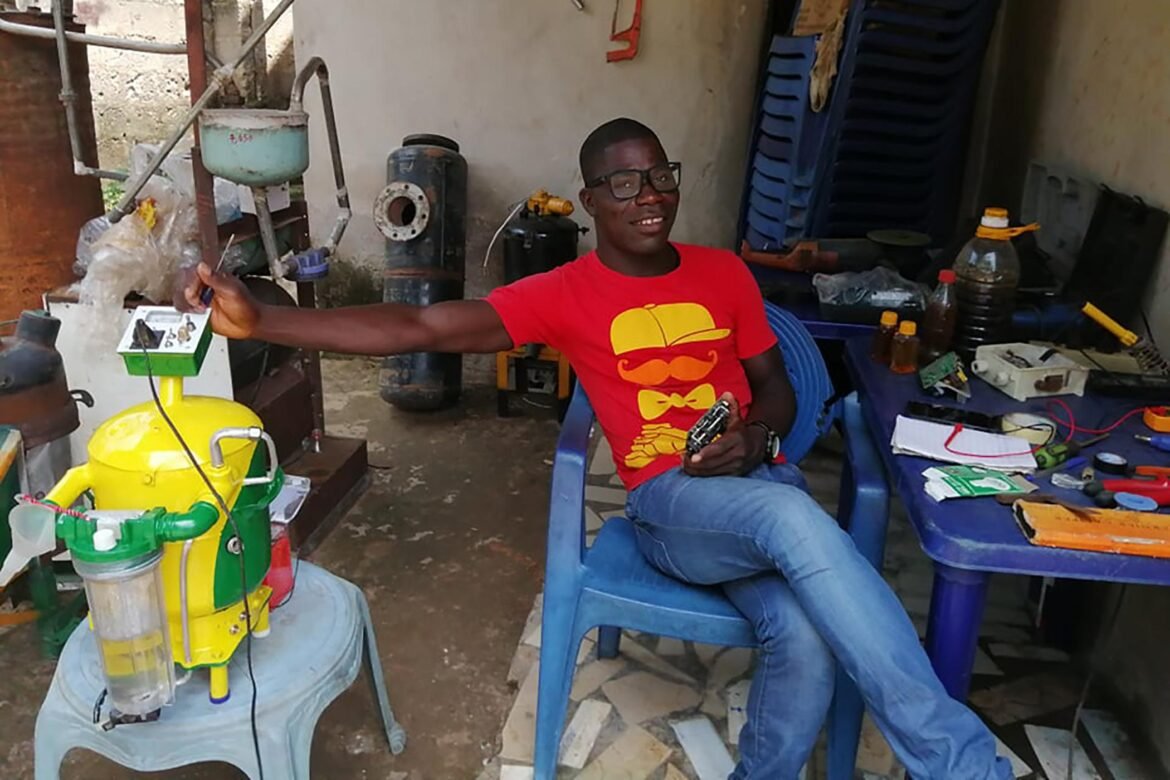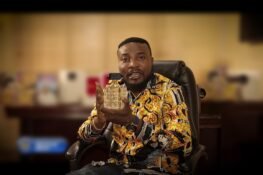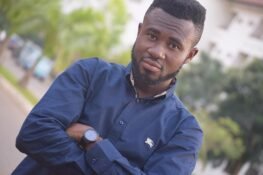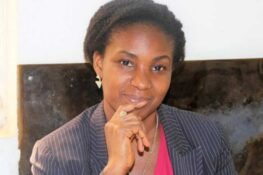You were able to achieve this even with no engineering background; how?
There has always been this hunger and thirst to solve problems around me.
By nature, I am a very curious person; always ready to learn and figure out why things happen and how to take advantage of those events, turning them into something good. Science and technology has always been my passion and it’s like something deep down in me.
What inspired the idea of the hydroelectric generator?
I lost my best friend, who I can tell you showed me affection and treated me like part of the class then, to generator fumes in my primary school days.
How long did the entire project take from conception?
It took over 20 years. During this period, I researched on the project.
I had to fabricate my own tools, build almost every part of the machine from scratch and what I could get around me.
There were a lot of mistakes but I always learnt from those mistakes; the mistakes ended up making me much better.
What were the materials used to make your invention? How did you get them?
I used metals, composite plastic materials and a lot other electrical and electronics materials. Ninety-five per cent of my materials were locally sourced while some were sourced outside the country.
By nature, I am a very curious person; always ready to learn and figure out why things happen and how to take advantage of those events, turning them into something good
What are the unique features of your invention? Tell us more about it….
My invention is powered by water, almost noiseless, zero emission, compact and reliable.
What did you do when the first prototype of your invention exploded during a test run?
Honestly, I really felt like quitting at the initial stage but I found myself back in the same spot working on the same project again few weeks later.
How much did the project cost you and how did you fund it?
I can’t really say how much the project cost, but the funding was mainly from friends and my personal savings.
What were the challenges you encountered in achieving this invention?
Lack of funding, basic equipment and tools and time.
Do you have other inventions?
Yes. I have other inventions like the waste to wealth machine (MGBANWE SERIES), Robotics, drones and others.
Has any of your inventions been tested and certified by relevant agencies in Nigeria?
Yes, for some of them like the Waste to wealth machine (MGBANWE SERIES). The Nigerian Content Development Managment Board (NCDMB), under Professor Leo Osuji, Chinedu Ikejiani and others from the agency have been assisting to get the design to standard.
What are your plans for the future?
First, I want to study in a good environment where I can access to good lab/workshop and advanced tech training, to build an empire of technologists, a group of solution providers. I also want my company Orange Genelectric to become the world leading giant in clean and renewable energy.
What should the government do to support you and other inventors out there?
Government should provide enabling environment, establishing a standard laboratory and workshops where we can go and work on our designs. There should also be provisions for research and study grants.








